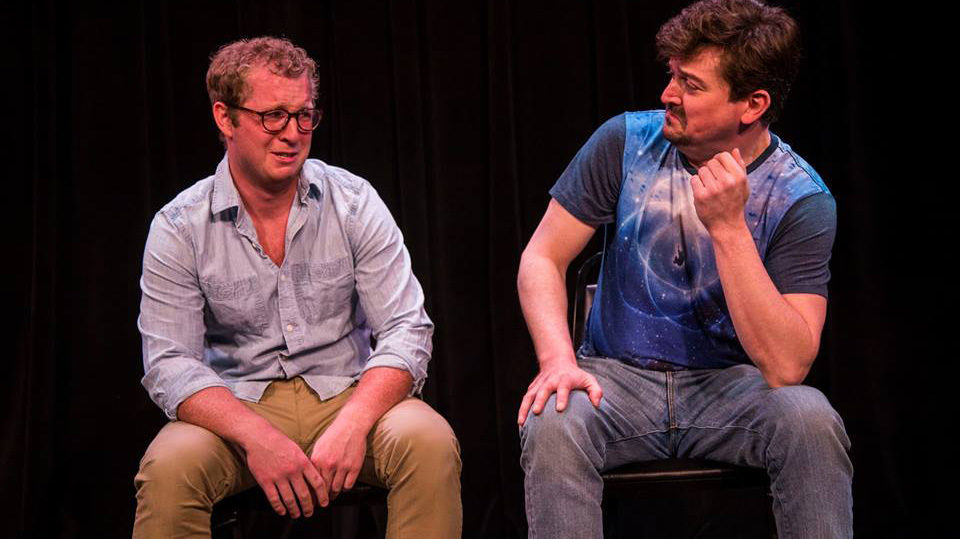Author: Thom Murray of IS Harold Team Glass Shark
Who are we, where are we, what are we doing, and how do we feel.
These are the four questions every improviser languishes over at the top of their scenes. To ask a performer to organically discover the life and relationship-status of a group, cooperatively and simultaneously, in front of a live, paying audience definitely falls more under the category of “doing work” rather than “having fun.” Base reality is the math of scenework. It can seem tedious to show your work if you already know the answer.
However, the transparency of discovery is necessary.
The process of detailing what we know can be just as vital and hilarious to a scene as the game or goof we stumble across later on. Showing your work patiently and deliberately provides a real opportunity to not just connect to your scene partner, but to extend the group mind of the team beyond the stage, and into the audience.
At the top of our scenes, our minds are in overdrive. Anything can happen, and that’s great! We are vessels of content and emotions, begging our scene partners to help reveal the tiny candy pieces in our wonderball facade.
But before the big reveal, we first have to have names.
It feels weird. I rarely yell out my friend’s names to get their attention. I mostly just say “….hey..” and they respond. Yet, when doing scenework and being as genuinely not-a-character as our imagination can muster, we must be a bit on-the-nose, and a little too obvious about the details of our current situation.
Outside of giving directions, when is the last time you’ve said “I’m at the park, on the upper row of the aluminum bleachers, by the left-field fencing.” Seems a bit like a ransomer-ransomee conversation. Not very natural, yet it is very clear where this character is located.
This is important because without blatant language, the audience will have no idea what’s going on in our heads.
That invitation is why the audience shows up in the first place. Art is creative, communal communication.
It’s the way society carries on a longform dialog with itself – sometimes saying exactly what it means, and oftentimes leaving thoughts open to interpretation. The questions we ask and the conversations we start can be considered more important than the artifact placed before us.
Improv, however, does not enjoy the benefit of long-term analysis. It begins, happens, is experienced, then leaves us. Perhaps we’ll luck out on a scene that strikes a chord with a few patrons.
To increase those odds, play it basic.
Clearly state what’s in your character’s mind. This is the way we all play when we first begin learning the tent-poles of scenic play. It works for a reason, and that reason is the primal groupmind we all share. We trust a thing to be true because it is what was said in a vacuum.
The audience has that trust for you, and it will grow as long as you nurture it. Keep making clear and deliberate statements. Label objects. Give people names. State your emotions and be basic. We will love it.
